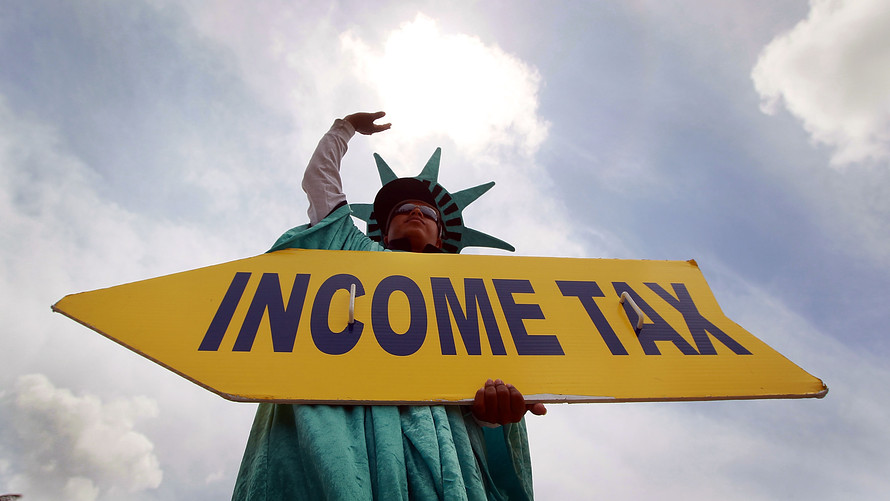
Manhattan is losing wealthy residents, home sales are falling in Westchester County, and real estate prices are flattening in several counties. Those are some of the effects that New York says it’s feeling because of the new cap on state and local property tax deductions.
The painful fallout of the new tax law is getting very real for certain Democratic-leaning states, and that should pave the way to a legal victory against the cap, those states said in recently filed court papers.
Months into tax season, New York, New Jersey, Connecticut and Maryland claim their case to void a $10,000 cap on state and local tax deductions is only getting stronger as the cap’s consequences come into sharp focus.
For example, home sales have slipped in Manhattan and the surrounding areas, while the state is now contending with a drop-off in income tax revenue because wealthy residents are moving to states with lower taxes, according to Manhattan Federal Court papers filed Friday.
“If there were any question” whether the states and their residents would be hurt financially by the cap, “recent developments dispel any doubt,” lawyers for the East Coast states argued.
The four states sued the Treasury Department last July over the $10,000 deduction limit written into the Tax Cuts and Jobs Act that President Donald Trump signed in December 2017. Before the new law went into effect, there wasn’t any deduction limit on state and local taxes.
The limits were meant to “inflict economic harm on the Plaintiff states, with the intent of coercing them into lowering their tax rates and cutting public investments,” the states wrote Friday.
Earlier this month, a MarketWatch analysis found that states that voted for Trump paid less of the federal tax burden, but reaped 56% of the money from the tax cuts.
The Treasury Department says the lawsuit is a loser from the start. It has argued that Congress has far-reaching powers to set tax levels and deduction rules. The cap is part of broader tax changes that reduces individual and corporate tax rates through 2025.
The court papers cited New York’s alleged predicament, where lawmakers are reportedly dealing with a $2.3 billion income revenue shortfall and home sale prices in Gov. Andrew Cuomo’s own Westchester County were off 3% in 2018’s last quarter.
In February, Cuomo called the deduction cap “economic civil war” that helped “red states at the cost of blue states.”
But some of the other suing states, like New Jersey, have said elsewhere they’re dealing with budget fallout from the deduction cap.
In January, United Van Lines said more people were moving out of the Garden State than any other state last year.
Lawyers for the federal government said if individual taxpayers feel wronged they can pay their taxes and sue for a refund; they don’t need the states stepping in to pick a fight, the feds said.
Internal Revenue Service filing statistics don’t break down average refund amounts state by state. IRS statistics show the average refund so far this year, $2,957, is just around the same amount as last year at this time, though more taxpayers had filed by this point last year.
A Treasury Department spokesman did not immediately return a request for comment.
Manhattan Federal Judge Judge J. Paul Oetken has the case.























